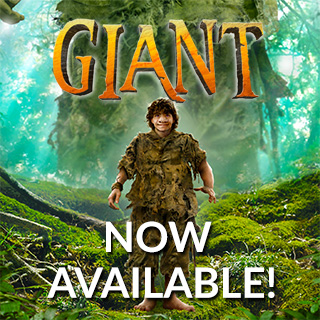The Creation of Young Heroes:
An Interview with Author T. A. Barron
LBH: Your new book, Atlantis Rising, explores the lost mythology behind the founding of Atlantis. What can readers expect from this exciting new release?
TAB: As you know, there are hundreds of stories about Atlantis—but all of them deal with the terrible destruction of that legendary place. That’s fitting, since the whole legend began with Plato’s description of a mythic island that was completely destroyed. This new trilogy, however, is the creation of Atlantis—its magical beginnings, the heroic young people who helped make it possible, the forces of arrogance and greed that threatened to stop it, and the enchanted place itself. So this is truly a creation story . . . but of Atlantis. It will be a story of real sacrifice and ultimate triumph (and, of course, the seeds of its ultimate tragedy).
LBH: You’ve published quite the collection of successful young adult and children’s books. What attracted you to these genres in particular?
TAB: I write books I would like to read. That means each story must have a character, a relationship, a place, a dilemma, and an idea that I care about. A lot. I like a story where an individual must deal with personal issues as well as overarching issues. So, rather than an age-specific genre, I chose to write of the mythic quest—call it fantasy if you prefer—because it allows me to incorporate all of these qualities.
LBH: The writing process is unique and highly personal for each individual author. What interesting quirks and habits have you developed in regard to your own writing process?
TAB: Writing is a strange, mysterious process. After more than twenty years, I still don’t know how it really works. But I do know it requires a special, personal chemistry. So I always write the first draft with a blue felt pen and a pad of paper, because that’s a good chemistry for me. Probably because, as a kid growing up in Colorado, that’s how I started writing. Once the manuscript is ready—a good first draft but still far from finished—I transfer it to a computer. Then I do six or seven complete rewrites—as many as it takes to get it right.
I also do a lot of background research—about Celtic lore, Native American dances, sunken treasure ships . . . whatever is needed to make the story authentic.
Last of all, I do some careful, delicate editing—marking up the printed copy with my friendly blue pen. And I do lots of rewrites. How many? As many as it takes to get it right! Most of my novels take six or seven full rewrites and at least a year or two to finish.
LBH: What are your thoughts on the technical side of book production? Specifically, could you provide your perspective on the recent changes in the publishing industry due to the emergence of e-books into the market?
TAB: In today’s publishing world, I suggest an author’s top priority is to find a literary agent. As most have experienced, it can be difficult to get published without one. How do you find one who is right for you? There are professional writers’ organizations, such as the Society of Children’s Book Writers and Illustrators and the Science Fiction & Fantasy Writers of America, that could be helpful. Or you could track down whoever was the literary agent for a published book you admire by contacting the editorial division of the publishing house.
You may be wondering why you need an agent. Thanks to the increased availability of self-publishing, and also the ability to reach new readers through the internet, there are more alternatives than ever. But for the time being, at least, there is nothing that beats having a major publisher adopt your work and distribute it to bookstores, electronic readers, MP3 players, and the like across the planet. To accomplish that, a literary agent can be very helpful.
LBH: What advice would you pass along to young and aspiring writers?
TAB: For starters, writing is the hardest work I’ve ever done—as well as the most joyous work I’ve ever done. Which is why all the hard labor is worthwhile. But in this regard, talent will only take you a small part of the distance you need to go. What is necessary in addition is discipline and persistence. Stay with your writing, no matter how many rewrites it takes to get it right!
And finally, I would tell aspiring writers: As you think about your dream to write . . . remember what Merlin said about the value of dreams (in The Mirror of Merlin, the fourth book in The Lost Years of Merlin series):
“A life—whether seamstress or poet, farmer or king—is measured not by its length, but by the worth of its deeds and the power of its dreams.”
So . . . write well, my friend! I wish you all the grace and truth of Fincayra, Middle Earth, and Avalon. You will find that, and more, I am sure.

